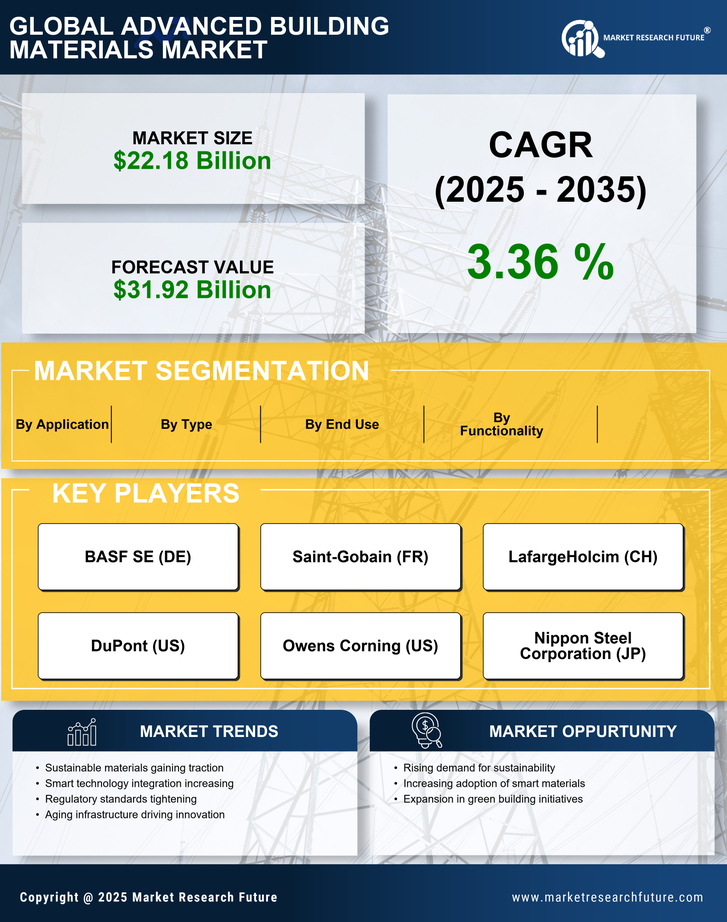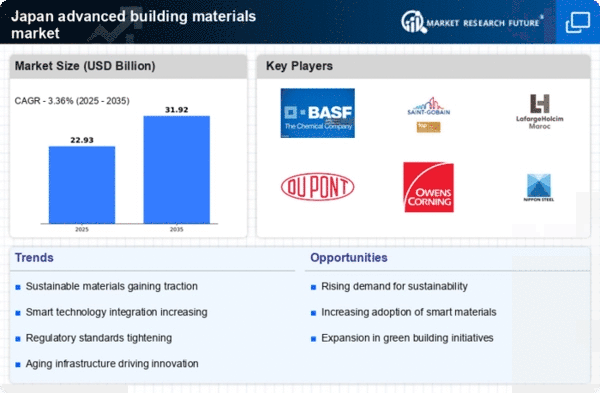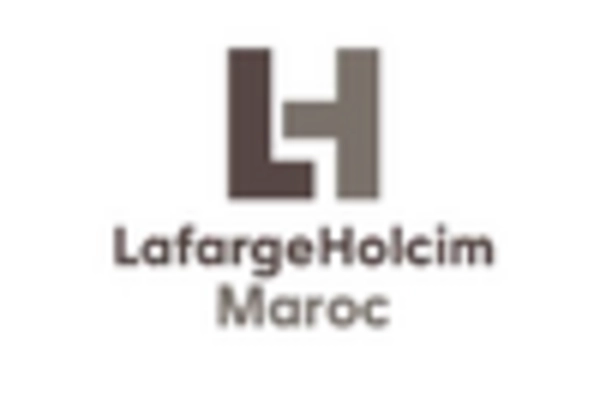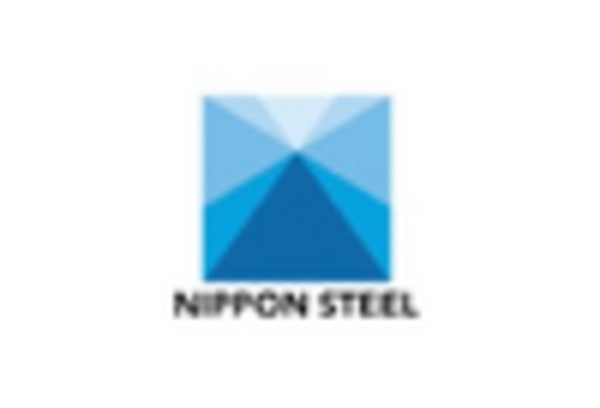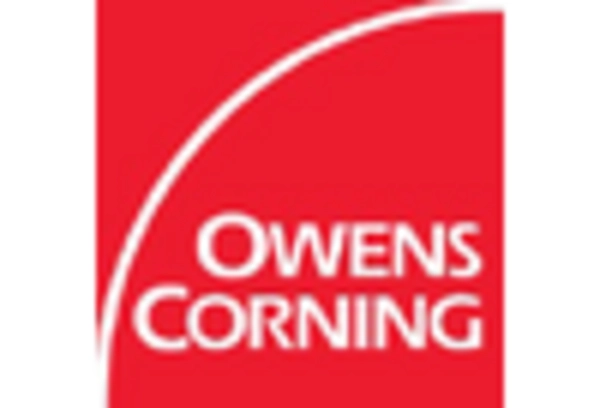Regulatory Support for Innovation
The advanced building-materials market in Japan benefits from robust regulatory frameworks that encourage innovation. Government initiatives aimed at promoting sustainable construction practices have led to increased investment in research and development. For instance, the Ministry of Land, Infrastructure, Transport and Tourism has introduced policies that incentivize the use of advanced materials, which are often more energy-efficient and environmentally friendly. This regulatory support is crucial as it not only fosters technological advancements but also aligns with Japan's commitment to reducing carbon emissions by 46% by 2030. Consequently, the advanced building-materials market is likely to experience growth as companies adapt to these regulations and invest in innovative solutions.
Resilience Against Natural Disasters
Japan's geographical location makes it prone to natural disasters, which drives the advanced building-materials market towards developing resilient construction solutions. The need for buildings that can withstand earthquakes and typhoons has led to innovations in materials that enhance structural integrity and safety. The government has invested heavily in research to improve building codes and standards, which has resulted in a growing market for advanced materials designed for disaster resilience. This focus on safety and durability is expected to continue influencing the advanced building-materials market as Japan prioritizes the protection of its infrastructure.
Consumer Demand for Energy Efficiency
There is a growing consumer demand for energy-efficient buildings in Japan, which is a significant driver for the advanced building-materials market. As awareness of environmental issues increases, homeowners and businesses are seeking materials that reduce energy consumption and lower utility costs. The government has set ambitious targets for energy efficiency, aiming for a 50% reduction in energy use in buildings by 2030. This shift in consumer preferences is likely to lead to increased adoption of advanced materials that meet these energy efficiency standards, thereby stimulating market growth.
Urbanization and Infrastructure Development
Japan's ongoing urbanization and infrastructure development significantly drive the advanced building-materials market. With a population density of approximately 347 people per km², cities are expanding, necessitating the construction of high-rise buildings and modern infrastructure. The government has allocated over ¥6 trillion for infrastructure projects in the coming years, which is expected to boost demand for advanced materials that offer durability and sustainability. As urban areas continue to grow, the need for innovative building solutions becomes increasingly critical, suggesting that the advanced building-materials market will thrive in response to these urbanization trends.
Technological Advancements in Material Science
The advanced building-materials market is propelled by rapid technological advancements in material science. Innovations such as self-healing concrete and nanomaterials are gaining traction in Japan, enhancing the performance and longevity of construction materials. Research institutions and universities are collaborating with industry players to develop these cutting-edge materials, which can potentially reduce maintenance costs and improve energy efficiency. The market for smart materials is projected to grow at a CAGR of 15% through 2027, indicating a strong future for the advanced building-materials market as these technologies become more mainstream.
